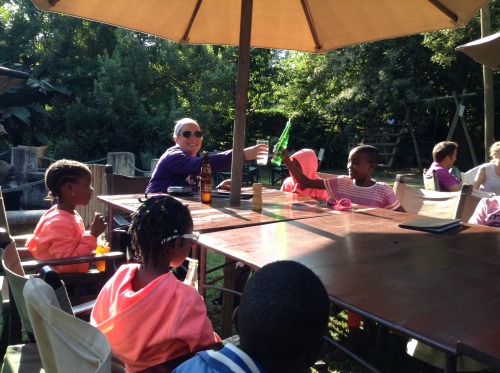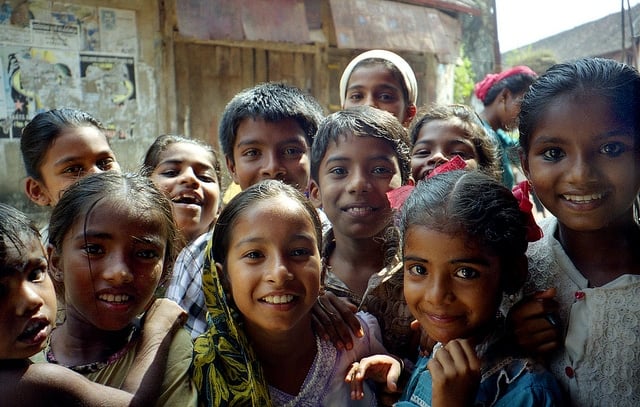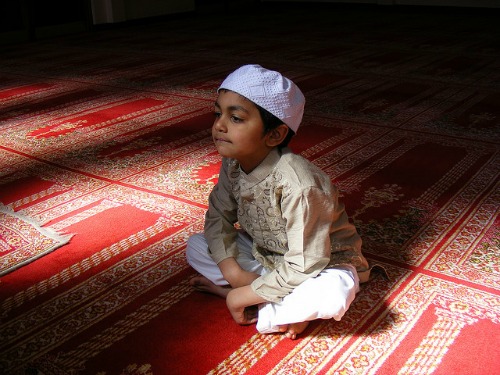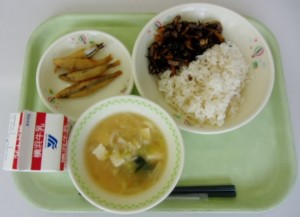
by Alison Fraser | Sep 9, 2014 | 2014, Africa, Canada, Education, Eye on Culture, Girls, Human Rights, Humanitarian, Humanity, Life Lesson, ONE, Poverty, Social Good, Tanzania, Uncategorized

Two months ago, I travelled back to Arusha, Tanzania as part of my work with Mom2Mom Africa. Each time I am in Arusha, I make sure to stop by a local outdoor restaurant frequented by many tourists. The restaurant resides on a beautiful piece of property, and offers free Wifi to connect back home to loved ones. I consider this to be a real luxury in the areas I work in Arusha so take full advantage of this establishment whenever possible.
On my last trip, I decided that I would take several of our Mom2Mom Africa students to this restaurant as a “treat”. What was originally planned as a small group outing with 5 or 6 children, ended up turning into a van full of children, and my colleague Aloyce. It was absolutely priceless to see me walk through the grounds followed by 12 little Tanzanian children, and Aloyce at the rear to ensure we didn’t lose any along the way! The other restaurant patrons could not stop staring!
I had questioned this dinner outing for days before making a decision to go ahead with it. Many believe that exposing those in poverty-stricken areas of the world, to ‘luxuries’ is unjust; a tease. I didn’t want to be that white foreigner.
But, after much thought, I decided to go ahead with our big dinner date. What influenced my final decision was the fact that the same holds true for my three little girls in Canada. As a mother, I often treat my girls to little extravagances. These are not every day occurrences, and in fact are more rare than common. And my girls understand that. If they could be treated each and every day, there would be no argument on their part. But, they know that even though that might be the reality of other little girls their age, it is not their reality. And they are ok with that and simply choose to enjoy the times that they do get to experience trips or dinner at fancy restaurants. I used this experience with my girls as the deciding factor in Tanzania. After all, everyone likes to be treated!
Seeing the kids eat pizza until their bellies were full, drinking pop, and laughing with their friends was one of the highlights of my time in Tanzania. When they noticed the playground with swings and teeter-totters, I lost them in play for 2 hours! They were beyond happy. And, that made me beyond happy. And, at that point, I thought to myself that I had made the right decision. I left the restaurant on cloud nine, with twelve happy little ones singing all the way home in the van.
All had gone as planned, until one little girl said out loud in the van…”I now know how mzungus (white people) live”…and my heart broke.
The restaurant is staffed with locals but caters to tourists, most of whom are white. Instead of this being a fun night out for all, Canadians and Tanzanians alike, the take home message was that white people deserve and live in a world of luxuries. My plan back-fired on me with a vengeance. It has been two months since that night, and that little voice from the back of the van still haunts me. I guess my mommy instinct was off this time. We all worry about making decisions that may negatively affect our own children’s lives. I now worry constantly about my decisions and how they may impact the lives of so many who call me “Mama Alison” in Tanzania.
Do you think it’s better to know what you are missing or not?
This is an original post written for World Moms Blog by Alison Fraser. Photo by Alison Fraser.
Alison Fraser is the mother of three young girls ranging in age from 5 to 9 years old. She lives with her family in Cambridge, Ontario, Canada. Alison works as an Environmental Toxicologist with a human environment consulting company and is an active member of the Society of Environmental Toxicology and Chemistry (SETAC). She is also the founder and director of the Canadian Not for Profit Organization, Mom2Mom Africa, which serves to fund the school fees of children and young women in rural Tanzania. Recently recognized and awarded a "Women of Waterloo Region" award, Alison is very involved in charitable events within her community including Christmas Toy and School Backpack Drives for the local foodbank.
More Posts - Website
Follow Me:



by Nadege Nicoll | Sep 5, 2014 | 2014, Family, Home, Kids, Me-Time, Milestones, Motherhood, Nadege Nicoll, Parenting, School, Time, USA, World Motherhood, Younger Children
 Back to school is not just about kids getting a new backpack, and a box of crayons. On back to school day, everybody in the family is going “back” to something. A norm, a rhythm, a routine. (more…)
Back to school is not just about kids getting a new backpack, and a box of crayons. On back to school day, everybody in the family is going “back” to something. A norm, a rhythm, a routine. (more…)
Nadege Nicoll was born in France but now lives permanently in New Jersey with her family. She stopped working in the corporate world to raise her three children and multiple pets, thus secretly gathering material for her books. She writes humorous fictions for kids aged 8 to 12. She published her first chapter book, “Living with Grown-Ups: Raising Parents” in March 2013. Her second volume in the series just came out in October 2013. “Living with Grown-Ups: Duties and Responsibilities” Both books take an amusing look at parents’ inconsistent behaviors, seen from the perspective of kids. Nadege hopes that with her work, children will embrace reading and adults will re-discover the children side of parenthood. Nadege has a few more volumes ready to print, so watch this space…
More Posts - Website
Follow Me:



by World Moms Blog | Aug 28, 2014 | 2014, Awareness, Being Thankful, Childhood, Cultural Differences, Culture, Domesticity, Education, Eye on Culture, Family, Grandparent, Guest Post, Home, India, International, Kids, Life Lesson, Motherhood, Nutrition, Parenting, Relationships, Traditions, World Motherhood, Younger Children
 Motherhood is one of the most beautiful experiences of a woman’s life. Raising children makes life full. I am raising my children in India and I feel that the environment in India helps a lot in inculcating a strong set of values.
Motherhood is one of the most beautiful experiences of a woman’s life. Raising children makes life full. I am raising my children in India and I feel that the environment in India helps a lot in inculcating a strong set of values.
I read a lot about the many ways children are raised in various parts of the vast Indian subcontinent. Here are some of the enriching reasons I find raising a child in India so wonderful:
1. Family Help: India is a country where the joint family system is prevalent. Children grow up having a lot of fun surrounded by generations of Grandparents, Uncles, Aunts and Cousins. This helps the child in her personal growth and instills great concepts like teamwork and adjusting to different kinds of people, with different mindsets. It also helps a child understand how to receive and give unconditional love.
Sadly, the joint family is breaking up nowadays and giving way to nuclear families. The nuclear family comprises of just the husband, wife and children. Sometimes, the husband’s parents come to stay. This helps build a strong bond between the children and the grand parents, which should be encouraged. The child will learn to respect traditional values which are an integral part of the Indian social fabric.
2. Learning to Respect Your Elders: Indian children are taught to respect their elders and extended family at a young age. Being around so many family members, children learn to show respect and love to one and all when they grow up. Some communities in India make it compulsory for the young people to touch the feet of the elders as the mark of reverence.
This custom is rarely found in any other culture across the world. This custom is instilled in the child’s mind from a very young age and it becomes second nature. This custom hasn’t changed even after western ideas and practices stealthily crept into India.
3. Kids Are Taught How to Save: Children in India are taught to save and not spend unnecessarily. Due to the conservative economy, Indian children learn at a very young age to prioritise their expenses. They learn to buy things which will give them value for money.
Nowadays many banks offer the option to open minor accounts for very small children. Instead of having children save their pocket money in piggy banks, they can save it in real banks. This teaches the child banking procedures at a very early age. Children can even maintain a separate copy for calculating the total expenditure. This will teach the child that it is not good to waste money.
4. Family Values: Children are inculcated with strong family values as they grow up among numerous family members. These family values help develop strong moral fiber. In the long run, they help in creating a strong personality which helps in their growth.
5. Character Development: Character defines how the child leads a holistic life. Parents in India work hard on character building for their child. Since all parents’ desire that their child grows up to become an honest and good human being.
6. Spiritual Discipline: Indian children are raised with enormous spiritual discipline. India is the land for spiritual growth and developing the spiritual qualities in a child helps him/her grow up to be a better individual. Children are taught about the importance of religion and customs. They are also taught to respect other religions as well, since the common idea of all religion is to achieve peace, moral strength and happiness.
7. Freedom When They Play: There is no requirement for an organized play time. A child will always find a group of children playing outside his house. So they can always find fun. They can step out any moment and experience a joyous playtime. Open spaces or children’s parks are still there and are not encroached by developmental activities and high rises.
8. Sharing and Caring: There is a lot of sibling bonding in Indian families. Parents teach children tolerance towards each other, love and patience. By sharing and caring for each other, this turns them into well-adjusted human beings.
9. Celebrating Traditions: India has one of the richest cultures which dates back more than 5000 years. So India is a land of festival and colors, cliché as it may sound, it is true. These celebrations are elaborate. All the kids are involved in the celebration of the festivals with the other children in the community. The children celebrate the festivals with their families and extended families.
10. Healthy Eating Habits: Emphasis is laid on eating healthy food. Children are allowed to eat junk food once in a while, but mothers cook at home. They are happy to feed the children with home cooked food. This makes the child health conscious. Mothers teach their children to choose healthy fresh fruits and vegetables. This also increases their knowledge about what is good for them.
The above stated facts hold true for a small portion of the Indian population, as the phrase goes ‘the privileged few’. Economically, India has progressed considerably in the last 60 years. The bigger picture, however, is quite different: a farmer hangs himself from a tree because he cannot provide for his family; a child is shunned from temples and public places due to his lower caste label; the rampant poverty in villages and lack of health amenities lead to reduced life expectancy; more children are seen carrying bricks and working in factories than in classrooms. These are children who don’t have access to formal education at all.
But for increasingly more kids, growing up in India is a blissful experience which helps them develop into amazing individuals. The calmness of spirit and the enriching environment in India is what gives these children an opportunity to explore life and themselves. The liveliness of the child is based on the amazing cultural forum that the Indian child inherits.
In contrast, malnourished children peddle the streets and somehow make a living. They are deprived of things that my child claims as basic rights. We have small children selling chai when they should be drinking a warm glass of milk instead. Yet from children like these, a leader has emerged – Narendra Modi. The contradictions and ironies of my country keep me enthralled. I trudge forward in earnest hope that my child will triumph in all spheres of her life.
Also, the technological development and fast paced life have made us so busy that we are finding less and less time for each other but still Indians never forget to smile at one another. Children brought up in India will never lose heart, since they have learned to struggle and attain victory in all fields of life. But to make that happen, we need to remember the wisdom Dr. Seuss imparted:
“Unless someone like you cares a whole awful lot, nothing is going to get better. It’s not.” — The Lorax
The image used in this post is credited to Ryan Ready. It holds a Flickr Creative Commons attribution license.
This is a first-time, guest post from Aradhana, a mother in India. Aradhana also is a passionate writer, who focuses on topics like yoga, wellness, health and lifestyle. She has contributed posts to Natural News, Wiki How, MomJunction, and Elephant Journal. Through her writings, she hopes to motivate people to develop healthy habits and adopt natural ways of living to achieve sound health.
World Moms Blog is an award winning website which writes from over 30 countries on the topics of motherhood, culture, human rights and social good. Over 70 international contributors share their stories from around the globe, bonded by the common thread of motherhood and wanting a better world for their children.
World Moms Blog was listed by Forbes Woman as one of the "Best 100 Websites for Women 2012 & 2013" and also called a "must read" by the NY Times Motherlode in 2013. Our Senior Editor in India, Purnima Ramakrishnan, was awarded the BlogHer International Activist Award in 2013.
More Posts

by Jennifer Burden | Aug 5, 2014 | 2014, Awareness, Education, Humanitarian, Older Children, Save The Children, Social Good, Social Media, World Moms Blog, World Voice, Younger Children

World Moms Blog is thrilled to be taking part in Save the Children‘s #FindTheWords campaign. The campaign raises awareness over 30 days with 30 words to emphasize that every child needs early education to thrive. The community of mothers that form World Moms Blog are committed to improving not just the lives of our own children, but of all children around the world.
Just by helping us spread the word by sharing on social media you will be entered to win a $100.00 gift card!
CREATE
The inspiration word we were given by Save the Children for this post was “create.”
We believe in creating the world we want to live in, here, at World Moms Blog. When I was looking to find a one-stop-place to read about mothers in different cultures and countries back in 2010, I couldn’t find what I was looking for. So on a whim, I decided to create the site I wanted to follow, just for fun.
In turn, the web site led me to new corners of the globe for social good and to meet my fellow World Moms, raised awareness for global health programs for women and children, created various international journalistic opportunities and fellowships for our contributors, and connected many very different women whom, otherwise, may have never connected, but are so glad they did!
Today, World Moms Blog writes from over twenty different countries spanning the globe, yet, we’ve found that mothers from such diverse places all want the same things for their children: health, peace, education, and security. We all want to see our children thrive and grow to their full potential.
There is an incredible sense of pride in creating something, whether you are a child creating a “masterpiece” or a mom creating the family financial plan. In creating World Moms Blog, I have had the opportunity to see many of our contributors run wild with their passions across our pages and witness our editors build our behind-the-scenes in managing over 60 volunteer contributors. That’s creation gone wild, and I love it!
With the help of the women who were part of writing and/or later embraced our mission statement, our site has blossommed into a tight-knit, albeit, world-wide community where the contributors and readers alike are able to broaden their worlds and connect over continents…all through the conduit of motherhood.
The word create inspires all we stand for at World Moms Blog. Whether it is to create an opportunity for yourself or for others to thrive globally, to create the life you want to lead, or the world you want to live in.
And we admire the work of Save The Children in creating a safe, healthy space for the children who need it most. Kids are at our heartstrings! Here are some amazing facts about the challenges children face around the globe:
- The first years of life are critical in children’s development, shaping cognitive, social and language skills, as well as lifelong approaches to learning. Evidence shows that 85 percent of brain growth occurs in the first five years of life.
- By age three, children from low-income homes hear on average 30 million fewer words than their peers, putting them 18 months cognitively behind his or her peers when they start school.
- 65% of young kids in need have little or no access to books. More than two-thirds of poverty-stricken households do not possess a single book developmentally appropriate for a child under five.
- Parents who talk less with their children in an engaging and supportive way have kids who are less likely to develop their full intellectual potential than kids who hear a significant amount of child-directed speech.
- Around the world, if all students in low-income countries acquire basic reading skills, 171 million people could be lifted out of poverty.
Help create the future we want for children with Save the Children’s #FindTheWords. Early education creates an environment for young minds to flourish all over the world.
Just by helping us spread the word by sharing on social media you will be entered to win a $100.00 gift card, here are the rules:
To enter share our post via twitter or Facebook or Snap a picture anywhere you see the word “Create” out in the world (or what it means to you) then post it to Facebook, Twitter, or Instagram.
To officially participate, your contributions must be tagged with the proper hashtags
#FindTheWords
#Create
and don’t forget to tag @WorldMomsBlog so we know you are in the running to win!
(The more people who share our posts the better chance we have of winning an interview with actress Jennifer Garner! So what are you waiting for!?)
a Rafflecopter giveaway
This is an original post to World Moms Blog by founder, Jennifer Burden.

Jennifer Burden is the Founder and CEO of World Moms Network, an award winning website on global motherhood, culture, human rights and social good. World Moms Network writes from over 30 countries, has over 70 contributors and was listed by Forbes as one of the “Best 100 Websites for Women”, named a “must read” by The New York Times, and was recommended by The Times of India.
She was also invited to Uganda to view UNICEF’s family health programs with Shot@Life and was previously named a “Global Influencer Fellow” and “Social Media Fellow” by the UN Foundation. Jennifer was invited to the White House twice, including as a nominated "Changemaker" for the State of the World Women Summit. She also participated in the One Campaign’s first AYA Summit on the topic of women and girl empowerment and organized and spoke on an international panel at the World Bank in Washington, DC on the importance of a universal education for all girls. Her writing has been featured by Baby Center, Huffington Post, ONE.org, the UN Foundation’s Shot@Life, and The Gates Foundation’s “Impatient Optimists.” She is currently a candidate in Columbia University's School of International and Public Affairs in the Executive Masters of Public Affairs program, where she hopes to further her study of global policies affecting women and girls.
Jennifer can be found on Twitter @JenniferBurden.
More Posts - Website
Follow Me:


by Salma (Canada) | Aug 1, 2014 | 2014, Bilingual, Canada, Childhood, Communication, Cultural Differences, Culture, Education, Family, Homeschooling, Language, Life Lesson, Multicultural, Relationships, Religion, Salma, Traditions, World Moms Blog, World Motherhood, Younger Children
 On her visit to our home last October my mother had a lot of one-on-one time with my three year old son. While I was in the hospital giving birth to my fifth child, she was asking some serious questions. In this short period of time my mother came to a serious conclusion; her grandson doesn’t know about God. (more…)
On her visit to our home last October my mother had a lot of one-on-one time with my three year old son. While I was in the hospital giving birth to my fifth child, she was asking some serious questions. In this short period of time my mother came to a serious conclusion; her grandson doesn’t know about God. (more…)

An Imperfect Stepford Wife is what Salma describes herself as because she simply cannot get it right. She loves decorating, travelling, parenting,learning, writing, reading and cooking, She also delights in all things mischievous, simply because it drives her hubby crazy.
Salma has 2 daughters and a baby boy. The death of her first son in 2009 was very difficult, however, after the birth of her Rainbow baby in 2010 (one day after her birthday) she has made a commitment to laugh more and channel the innocence of youth through her children. She has blogged about her loss, her pregnancy with Rainbow, and Islamic life.
After relocating to Alberta with her husband in 2011 she has found new challenges and rewards- like buying their first house, and finding a rewarding career.
Her roots are tied to Jamaica, while her hubby is from Yemen. Their routes, however, have led them to Egypt and Canada, which is most interesting because their lives are filled with cultural and language barriers. Even though she earned a degree in Criminology, Salma's true passion is Social Work. She truly appreciates the beauty of the human race. She writes critical essays on topics such as feminism and the law, cultural relativity and the role of women in Islam and "the veil".
Salma works full-time, however, she believes that unless the imagination of a child is nourished, it will go to waste. She follows the philosophy of un-schooling and always finds time to teach and explore with her children. From this stance, she pushes her children to be passionate about every aspect of life, and to strive to be life-long learners and teachers. You can read about her at Chasing Rainbow.
More Posts - Website

by Melanie Oda (Japan) | Jul 31, 2014 | 2014, Cultural Differences, Food, Japan, School, World Moms Blog

chow_time
I read on the internet a lot about how America is trying to change their school lunch program and make it healthier. And I read a lot about how some people are not happy about this. They complain that kids won’t eat what they don’t like, food gets wasted, etc.
All of that may be true. But I thought I would share what school lunch is like here in Japan.
Children in elementary schools across the country receive a hot lunch every day. The menu is widely varied, with international kid favorites like spaghetti with tomato sauce, the local preference of curry and rice with salad and yogurt, to more traditional foods like fish with miso sauce, vegetable pickles, and wakame seaweed soup. Most days the meals are heavy on vegetables. They include fruit in season occasionally, and maybe once a month or so there is a light desert like jelly (jell-o) or ice cream. Some days they have rice, other days they have bread, still other they have noodles.
And, with a few exceptions, the kids love it!
Why is that?
Part of the reason may be attitude. When my husband was a kid, they didn’t have the facilities to prepare rice and noodles, so he looks at the monthly menu and says “ii na-,” I wish I could have had that! Let’s go back another generation, to my father-in-law. He had bread and milk only every day (ironically enough, he says it was supplied by the occupying US forces,) and he was grateful for it at a time when there may or may not have been dinner waiting for him at home. But- hamburger steak and pickled cabbage with tomatoes? “Ii na!”
In our city, preschoolers, junior high kids, and high school kids have to take their lunch. A bento lunch can be a wonderful thing, but it isn’t hot and doesn’t come with milk.
But perhaps the most important reason is that the kids themselves are involved in food preparation. Each week, half the class is in charge of serving the other half. They carry the pots and trays and multiple little dishes and utensils up to their classrooms, then ladle and scoop and pass the food to each other. When time is up, they clean it up and go have recess.
So if you don’t eat, or you take too long, you make your friends late for recess. That’s quite a motivator there, isn’t it?
Japanese children, in most cases, don’t have the option of taking their lunch if what’s on the menu that day isn’t to their liking. When my son was in first grade, that really bothered me. There were days when he only ate rice, or only ate bread, and I would have been happy to have been able to pack him a sandwich or a banana or something! But after being faced with foods he wouldn’t normally try, day after day, he’s blossomed into quite the adventurous eater. He eats so many different things now. Dinner time is much less of a battle than it used to be, and I think that’s due to the varied and interesting food he gets at school every day.
Do your children have a hot lunch at school? What’s on the menu for chow time?
This is an original post by World Moms Blog contributor, Melanie Oda in Japan, of Hamakko Mommy.
Photo credit to the author.
If you ask Melanie Oda where she is from, she will answer "Georgia." (Unless you ask her in Japanese. Then she will say "America.") It sounds nice, and it's a one-word answer, which is what most people expect. The truth is more complex. She moved around several small towns in the south growing up. Such is life when your father is a Southern Baptist preacher of the hellfire and brimstone variety.
She came to Japan in 2000 as an assistant language teacher, and has never managed to leave. She currently resides in Yokohama, on the outskirts of Tokyo (but please don't tell anyone she described it that way! Citizens of Yokohama have a lot of pride). No one is more surprised to find her here, married to a Japanese man and with two bilingual children (aged four and seven), than herself. And possibly her mother.
You can read more about her misadventures in Asia on her blog, HamakkoMommy.
More Posts






 Back to school is not just about kids getting a new backpack, and a box of crayons. On back to school day, everybody in the family is going “back” to something. A norm, a rhythm, a routine.
Back to school is not just about kids getting a new backpack, and a box of crayons. On back to school day, everybody in the family is going “back” to something. A norm, a rhythm, a routine. 




 On her visit to our home last October my mother had a lot of one-on-one time with my three year old son. While I was in the hospital giving birth to my fifth child, she was asking some serious questions. In this short period of time my mother came to a serious conclusion; her grandson doesn’t know about God.
On her visit to our home last October my mother had a lot of one-on-one time with my three year old son. While I was in the hospital giving birth to my fifth child, she was asking some serious questions. In this short period of time my mother came to a serious conclusion; her grandson doesn’t know about God. 




